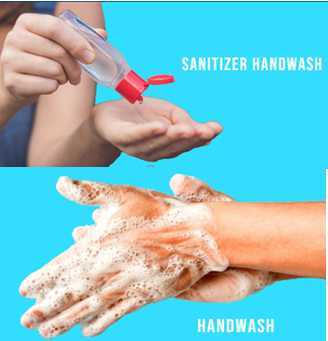Despite clear FDA recommendations for handwashing and glove use, food worker compliance with the recommendations is inadequate. There is frequent use of alcohol-based hand sanitizers (ABHSs) instead of hand washing in health care settings. The practice has improved hand hygiene compliance rates and reduced infections. The Food Code continues to permit the use of ABHSs only after hands have been washed with soap and water. A study published in J Food Prot (2021) 84 (5): 781–801 found that alcohol-based solutions are better than soap when soil is light to moderate. The data suggest that ABHSs are less effective than handwashing with soap and water for reducing bacteria when hands are heavily soiled with feces or organic substances. When heavy hand contamination exists, the combination of hand washing followed by the use of an ABHS can reduce bacterial counts on hands to a greater extent than either process alone. ABHSs may be helpful in some settings in which soap and water are not available (e.g., on large farms). Alcohol-based solutions have increased activity against noroviruses.@ https://meridian.allenpress.com/jfp/article/84/5/781/449411/Scientific-Evidence-Supports-the-Use-of-Alcohol
The use of alcohol-based hand sanitizers as an alternative to hand washing in retail food and foodservice
Scientific Evidence Supports the Use of Alcohol-Based Hand Sanitizers as an Effective Alternative to Hand Washing in Retail Food and Food Service Settings When Heavy Soiling Is Not Present on Hands | Journal of Food Protection
No comments

